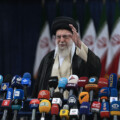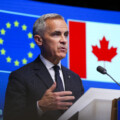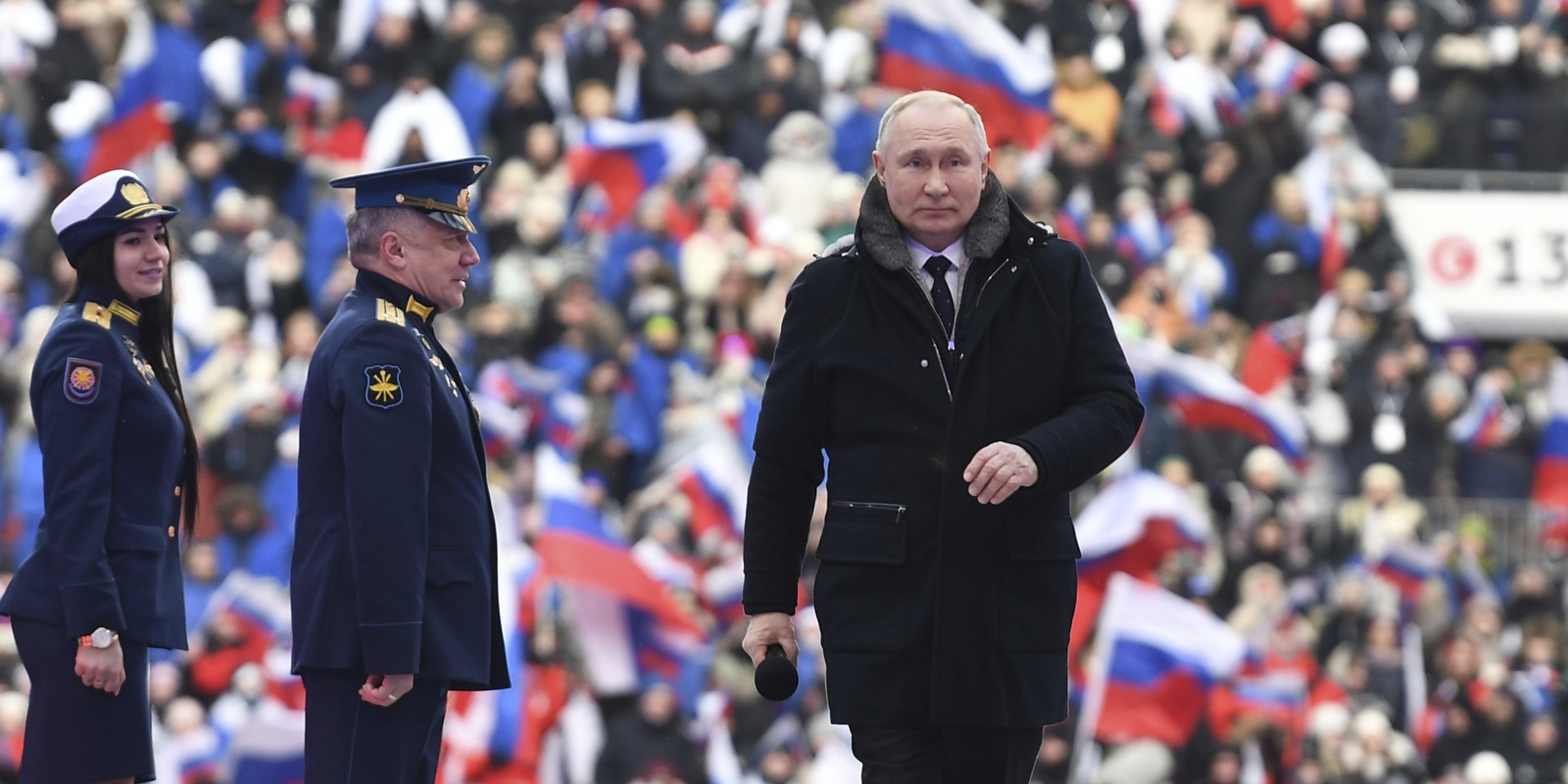On the one-year anniversary of the Russian invasion of Ukraine, the most urgent questions remain whether the conflict will go nuclear and when it will end.
According to experts, the chances of a nuclear exchange have gone down, but the prospect of a long, grueling war remains high.
With NATO members recently agreeing to provide modern battle tanks to Ukraine’s armed forces, Vladimir Putin and other high-ranking members of the Russian government have hinted at nuclear conflict in response.
With a new mobilization announced by Russia to continue the war effort, Elbridge Colby, the former U.S. Deputy Assistant Secretary of d for Strategy and Force Development, says he is less concerned about nuclear conflict than he was in recent months.
“The Russian mobilization effort is a downside. It’s bad,” says Colby. “But one of the silver linings to it is that it appears to indicate that the Russians don’t think they need to use nuclear weapons that much.”
Despite the rhetoric from Putin and others in his government, a November statement from the Russian Ministry of Foreign Affairs publicly stated that Russia remained opposed to escalating nuclear threats.
“We are strongly convinced that in the current complicated and turbulent situation, caused by irresponsible and impudent actions aimed at undermining our national security, the most immediate task is to avoid any military clash of nuclear powers,” read the statement from the ministry.
Colby says that if Putin was serious about using nuclear weapons, he probably would not continue to conduct large-scale mobilizations and conventional offensives. However, Colby cautions against completely writing off the potential use of nuclear weapons.
“I think the nuclear dimension is very real and serious,” says Colby. “It’s something we should take seriously. But right now, I’m a little less worried than I was, but that could change again.”
On Tuesday, Putin suspended Russian participation in the New START treaty, a U.S.-Russia nuclear arms control treaty signed in 2010.
“Our relations have degraded, and that’s completely and utterly the U.S.’s fault,” said Putin during Russia’s annual state of the nation address. “If the U.S. conducts tests, then so will we. Nobody should have any illusions that global strategic parity can be destroyed.”
As for the war in Ukraine itself, Colby says its course will ultimately be determined on the battlefield.
Balkan Devlen, a senior fellow at the Macdonald-Laurier Institute, is of the same opinion and expects a Russian defeat if the Kremlin eventually decides the cost of prosecuting the war is too high.
“When we get there, and how we get there, is a big question,” says Devlen. “As long as the Western support for Ukraine continues, Ukrainians will continue to fight, and, therefore, the end of the war will be determined on the battlefield in a way, if and when the Russians decide that the cost is too high.”
That cost to Russia may occur from damage to its economy, especially through Western Europe’s attempts to wean itself off cheap Russian oil and gas, which, prior to the invasion, had created a mutually beneficial relationship between the EU and the Russian Federation.

Despite opposition from some EU member states like Hungary, the EU’s economic leaders like Germany and the Netherlands have curtailed Russian energy imports and attempted to diversify their natural gas sources.
“I cannot see them (EU) going back to being dependent on Russian energy as well,” says Devlen. “That also radically decreases Russia’s ability to restructure its economy and rely on (that) particular set of revenues.”
In 2020, energy exports accounted for the majority of Russian exports, while nearly half of Russia’s GDP was dependent on trade. By comparison, trade accounted for 25 percent of the American GDP and 37 percent of Japan’s GDP in 2021, according to the World Bank.
However, Russia’s economy defied numerous predictions in 2022 that an economic collapse was coming due to sanctions. Colby says Russia’s economy has proved remarkably stable and is transitioning to a wartime economy.
“The Russian economy is expected to grow faster than the British economy next year,” says Colby, while also citing a Wall Street Journal article reporting that shops in Russia’s largest cities are, on the surface, operating normally.
Both Devlen and Colby say people should expect a long war in Ukraine that will not end in 2023.
Recommended for You

The Notebook by Theo Argitis: Mark Carney’s first major tests

Michael Bonner: Are we witnessing the last gasp of Iran’s Islamic Republic?

Need to Know: Yahoo, Alberta! You’re doing something right

‘He’s a master of globalization in a re-nationalizing world’: Michael Ignatieff on the domestic and geopolitical challenges facing Prime Minister Carney




